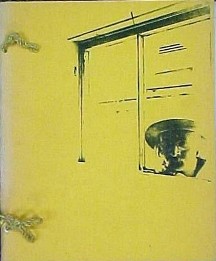 First edition | |
| Author | Richard Brautigan |
|---|---|
| Cover artist | Bill Brock |
| Language | English |
| Genre | Poetry |
| Publisher | Communication Company |
Publication date | 1967 |
| Publication place | United States |
| Media type | Print (Softcover) |
| Preceded by | The Octopus Frontier |
| Followed by | Please Plant This Book |
All Watched Over by Machines of Loving Grace is Richard Brautigan's fifth poetry publication. Like several of his early works, the entire edition (of 1,500 copies) was distributed for free. The title poem envisions a world where cybernetics has advanced to a stage where it allows a return to the balance of nature and an elimination of the need for human labor. All thirty-two of the poems in this collection were republished in The Pill Versus the Springhill Mine Disaster .